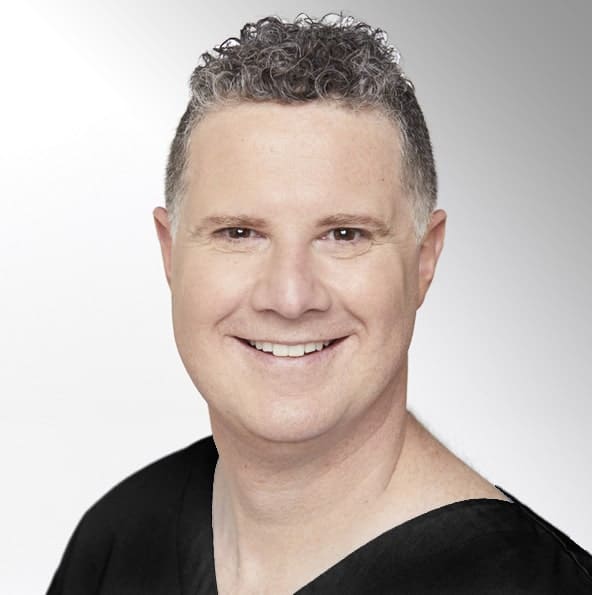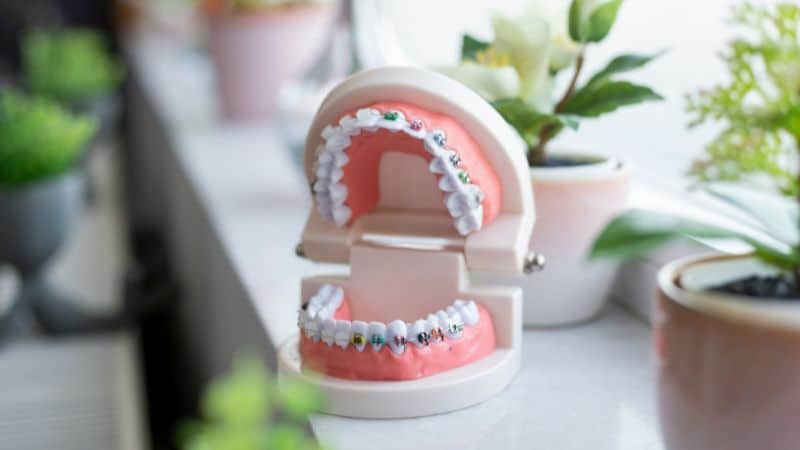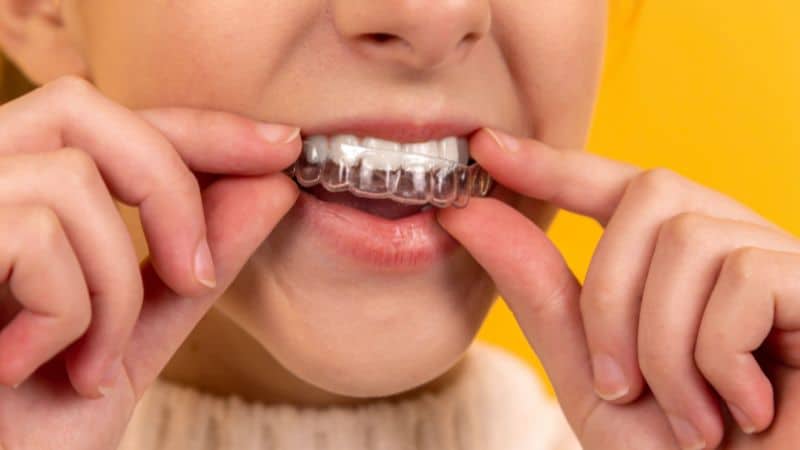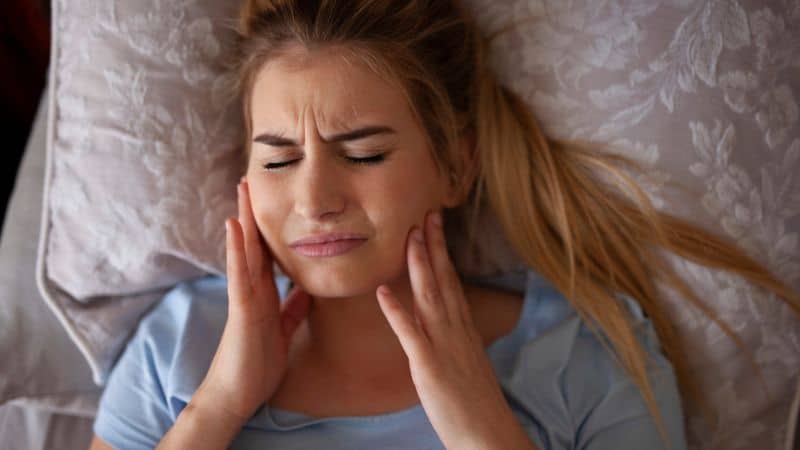
What Is Bruxism or Teeth Grinding?
Teeth grinding, also known as bruxism, often causes jaw pain and structural damage to the teeth. Many people don’t realize they are grinding their teeth until pain develops or, in some cases, their dentist notices the wearing of the upper portion of the teeth.
Most people grind infrequently, such as when they are anxious or stressed. Some grind all of the time. While infrequent grinding doesn’t typically cause damage, frequently engaging in teeth grinding can cause a number of complications for overall oral health.
What Causes Teeth Grinding?
Many factors contribute to teeth grinding. The most common causes for teeth grinding relate to stress and anxiety. It is not uncommon for a person who is facing ongoing stress to grind their teeth. The grinding sensation can feel like a type of stress relief for the individual. Sleep disorders, especially sleep apnea can also cause bruxism.
Those who regularly drink large quantities of alcohol or use tobacco products are at a higher level of grinding, as are those who use recreational drugs. If you drink a lot of caffeine, such as over 6 cups a day, that also puts you at a higher risk for bruxism.
Another factor is medication. Those taking anti-anxiety drugs like selective serotonin reuptake inhibitors (SSRIs), are more likely to grind their teeth than those that do not.
Types of Bruxism
There are two main types of bruxism, defined by when they happen. The grinding motion occurring in these conditions is the same.
Awake Bruxism
This type of bruxism occurs when you are awake. It often is fueled by feelings of anxiety, stress, or anger. A stressed or anxious individual may clench their jaw and grind their teeth during the day as a way to process what they are feeling. It can also happen when a person is concentrating heavily on a topic, often as if they are deep in thought.
In most cases, awake bruxism does not require treatment because the grinding is typically less significant. However, the individual needs to notice that they are grinding and then work on trying to stop. Becoming aware of the grinding is not always easy, especially at first. It may require the use of stress management to help find a way to reduce the desire to grind.
Sleep Bruxism
The second type, sleep bruxism, can occur for various reasons. As the term suggests, this type of bruxism occurs when you grind your teeth while you are asleep. This type of grinding is more difficult to prevent without intervention because you cannot just become aware of it—simply because you’re asleep! That is why this type of grinding typically causes more damage to the teeth overall.
It may take some time for the signs of bruxism to become sufficiently evident. One of the key concerns is that people who have this type of bruxism do not realize how strong or tight they are clenching their jaw while grinding. In some cases, it can create as much as 250 pounds of force while grinding. This is what typically causes jaw pain and damage to the surface of the teeth. For some, waking up to a headache frequently is an indication that this type of teeth grinding is occurring.
Neither type of bruxism is good for your teeth. Finding a way to treat it is critical, but to do that, you need to know that you are grinding your teeth.
Signs You’re Grinding Your Teeth
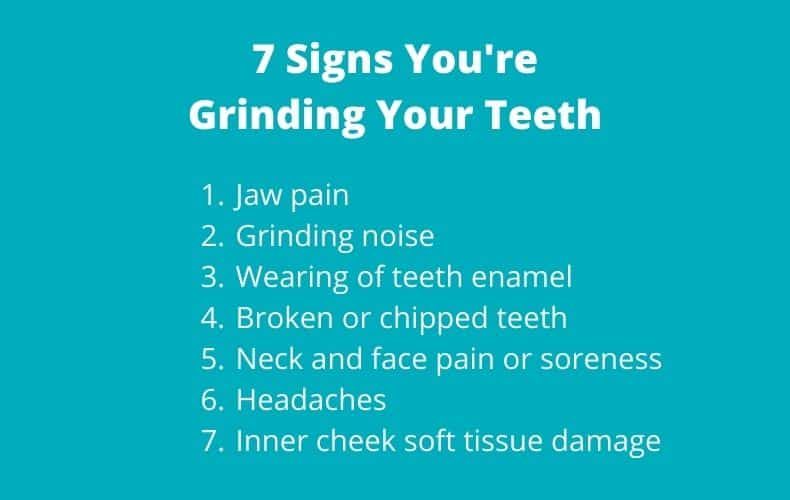
Sometimes it may not be obvious that you’re grinding your teeth. Here are a few key indications that you may be doing this in your sleep or even during the day, without realizing it:
- Jaw pain: If you wake up each morning with jaw pain or a stiff, tight feeling in your jaw, that could indicate teeth grinding.
- Grinding sound: The grinding some people engage in is so loud that it wakes them from their sleep. It may wake up your partner, too.
- Wearing: The wearing of the tooth enamel, especially on the upper portions of the teeth, is another indication. This often leads to the exposure of the deeper layers of your teeth.
- Damaged teeth: Aside from flattening, some people also have broken or chipped teeth. Some also have loose teeth not explained by other conditions.
- Soreness: The jaw pain you feel may not seem so localized. In some cases, people also feel pain and soreness in their neck and face. Some pain feels like an earache though there is no sign of infection or inflammation in the ear.
- Headaches: You may have a dull headache from time to time. This often is focused in the temple area.
- Cheek damage: The grinding motion can lead to the interior soft tissues of the mouth becoming damaged.
If you notice any of these symptoms, seek out the help of your dentist right away. That can help to determine if grinding is occurring and what the proper treatment for it may be.
Consequences of Teeth Grinding
Not taking action to correct teeth grinding is a significant concern, especially as it can go on for years, leading to substantial damage to the teeth. Most of the time, bruxism doesn’t cause very serious damage, but it can cause problems such as:
- Intensifying and more frequent pain
- Tension-type headaches that increase in frequency
- Damage to the teeth that requires extensive repair
- Temporomandibular joint damage can occur over time
- Jaw alignment problems can develop
Repairs to teeth can be difficult, and in some cases, implants or dental crowns may become necessary. If left without care, the cracks and holes in the teeth created by grinding can allow bacteria to infiltrate this area, leading to pain, infection, and tooth damage.
Solutions to Treat Bruxism
Your dentist works to address and diagnose bruxism as a first step. Once he does this, which generally occurs with just a visual exam, it is time to talk about treatment options. There are several that may be available to you.
Underlying problems
If you have an underlying problem contributing to the grinding, tackle that as a first step. For example, if you have anxiety that is causing the intense grinding, work with a therapist to move beyond that frustration and pain. For those who have a sleep disturbance, it is possible to work with a doctor to develop a better understanding of why it occurs and what can be done about it.
Many people benefit from cognitive-behavioral therapy, a type of talk therapy that allows you to work through the frustrations you’re feeling. A therapist can help you understand what is causing your stress and aid in finding a solution for it.
Mouthpiece or bite plate
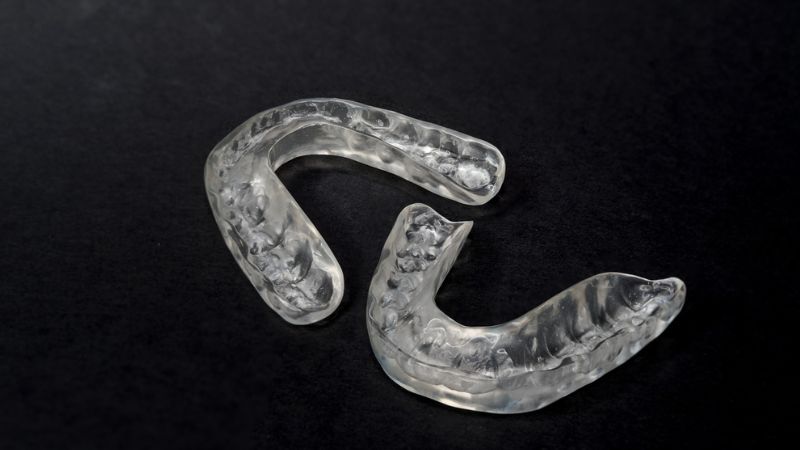
Treating a teeth grinding problem with various methods can take time. In the meantime, your dentist may recommend that you wear a bite plate to protect your teeth at night.
Although you can buy a generic solution at the drugstore, a custom-made bite plate will provide you with a better fit and comfort and will be more resistant to the pressure of your teeth. It will fit snugly around your teeth while creating a protective shield against further damage. This fit will also help protect the muscles and temporomandibular joint (TMJ) by eliminating the ability to engage in grinding motion.
Hypnosis
Some people benefit from the use of hypnosis as a type of treatment for teeth grinding. It can help with the grinding itself, or in some cases, it can help you to stop using drugs and alcohol. Hypnosis can help address the underlying cause in many situations.
Dental Care Is Important – Don’t Ignore Your Bruxism!
It is important to visit your dentist regularly to quickly identify signs of damage related to bruxism. If there are visible signs, timely and appropriate treatment will protect your oral health from further deterioration.
It is not uncommon for people with severe forms of this condition to require more advanced dental care. This may include dental crowns that can fit over teeth damaged by bruxism. In some situations, especially when there are significant cavities or other significant noticeable damage, removal of teeth may be necessary. Dental implants are then a potential solution to restore your smile and dental health.
Take the First Step to Treat Your Teeth Grinding
Often undetected, bruxism can cause serious damage to your teeth. If you are experiencing symptoms of teeth grinding, contact Centre Dentaire Pierrefonds as soon as possible. We make custom-molded mouthpieces to protect your teeth while you sleep.

